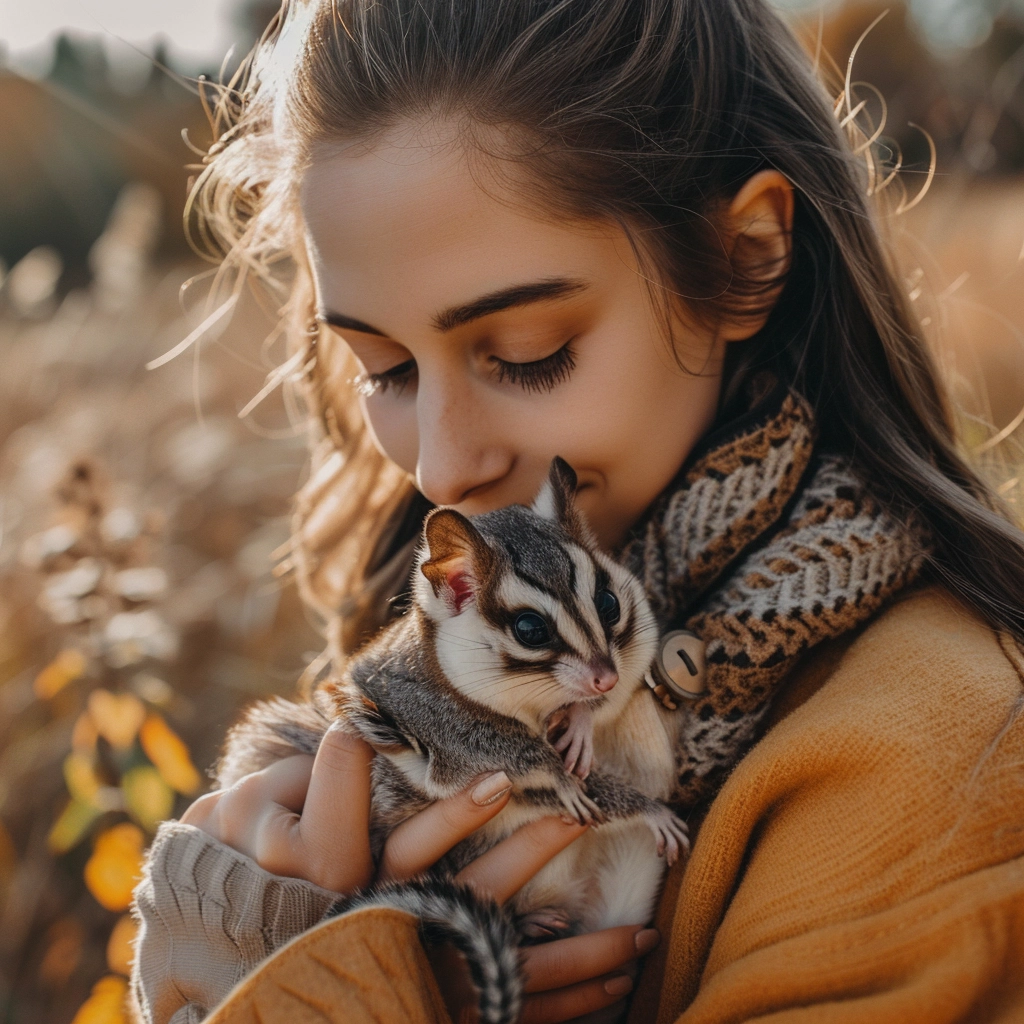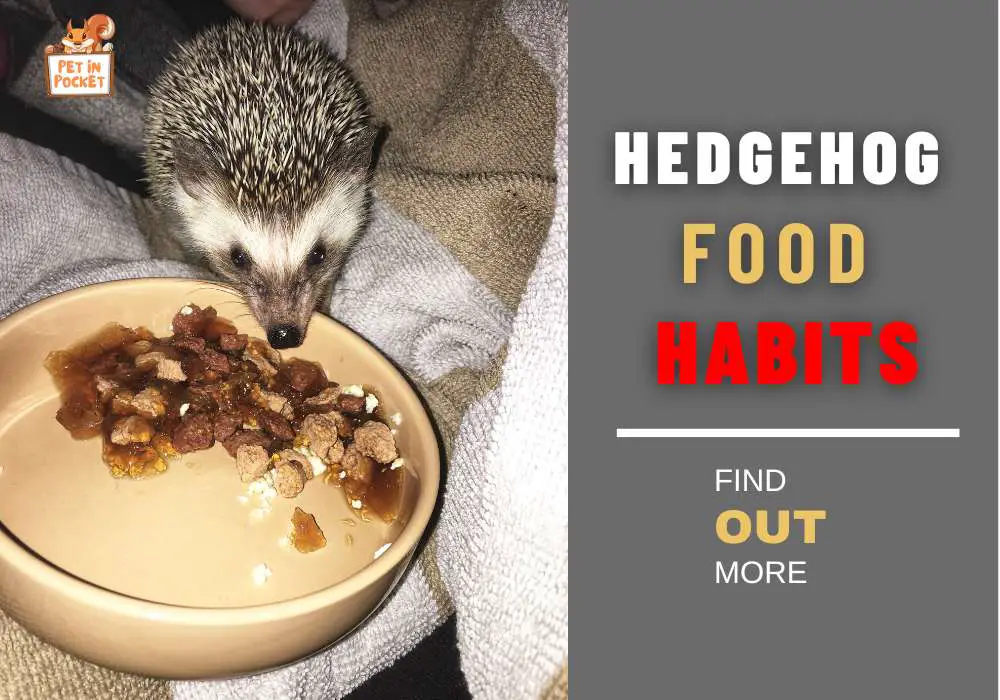Are you considering getting a sugar glider as a pet? These adorable and unique creatures can make great companions, but it’s important to know the legalities surrounding their ownership. In this blog where are sugar gliders legal?, we will dive into the characteristics and temperament of sugar gliders, their health concerns, and how to care for them. We will also address the legal status of owning sugar gliders. While they are legal to own in many countries and states, there are still restrictions based on wildlife protection laws and habitat needs.
Lastly, we’ll help you determine if a sugar glider is the right pet for you by discussing their housing and feeding requirements, as well as bonding and socialization needs.
Table of Contents
Get touched with sugar gliders.
Sugar gliders are originally from Australia but if we want then we can keep them as pet anywhere in the world . Prospective owners should familiarize themselves with local laws regarding these exotic animals as pets. Daily interaction is crucial due to their social nature, emphasizing the importance of considering the time commitment required. A proper diet incorporating fresh fruits and suitable housing are essential for their health. Understanding the impact of bringing a new pet like sugar gliders into your home is crucial for creating the best environment for these small size mammals.
Characteristics and Temperament of Sugar Gliders
Sugar gliders, small nocturnal mammals, require a spacious cage for jumping and gliding. They thrive in the company of their kind and are best kept in pairs to fulfill their social needs. With an average length of 12 inches, they are known for their cleanliness and regular self-grooming, resembling flying squirrels. As pocket pets, sugar gliders are cherished for their endearing appearance and strong social bonds, making them an ideal choice for those seeking a new pet with unique characteristics and care requirements.
Health Concerns of Sugar Gliders
Sugar gliders are very sensitive animals . They can be fallen sick very easily if they are taken care of in a wrong way. So as a pet owner we need to be serious when it is about sugar gliders care. It is crucial to seek guidance from a reputable breeder or veterinarian to ensure the well-being of these native wildlife creatures. Neglecting their diet and socialization needs can lead to potential health problems, emphasizing the importance of understanding state laws regarding sugar gliders, especially in the United States.
Regular vet check-ups are essential for these small size mammals to prevent health concerns and ensure their overall well-being. Adhering to the best way to care for sugar gliders is vital for their longevity and happiness.
The Legalities of Owning Sugar Gliders

As these animals are from Australia and New Guinea, we need to keep that in mind that they deserves the touch of their native place. Prospective owners must research state laws before considering them as pets. Compliance with regulations is crucial for responsible ownership. Knowing the legalities can help in making informed decisions about adopting sugar gliders as new pets. It’s important to be aware of the legal status, especially in places like New York City, Alaska, and Salt Lake City, where specific laws may apply. Breeding and breeding restrictions are also key factors to consider when contemplating owning these small pouch-bearing mammals.
Countries where Sugar Gliders are Legal
Certain regions have regulations on owning exotic animals like sugar gliders. Australia, the native habitat of sugar gliders, and New Guinea allow them as pets. Simultaneously, many countries, including the United States, have laws governing their ownership. Before acquiring these new pets, it’s crucial to research the legal status of sugar gliders in specific countries. This is especially important for potential owners to understand the best way to care for these small size mammals legally. Researching online and reaching out to local authorities can provide valuable information on the legality of owning exotic pets like sugar gliders.
States in the U.S where Sugar Gliders are Legal
Sugar gliders are legal to own as pets in several states across the U.S., including New York, California, Pennsylvania, Hawaii, and Georgia. Prospective sugar glider owners should understand the importance of closely examining state laws and regulations before considering these exotic animals as new pets. Compliance with local legislation governing native wildlife is crucial for responsible ownership. Staying informed about the legalities of sugar gliders, especially how they impact their care and ownership, is the best way for prospective owners to navigate the legal landscape. Responsible ownership includes being aware of any cons or limitations related to sugar glider ownership in specific states.
Factors Influencing the Legal Status of Sugar Gliders
Ethical considerations and wildlife protection laws play a significant role in determining sugar glider legality. Restrictions based on habitat and care needs are pivotal in ascertaining their legal status, with factors such as wildlife protection laws and ethical considerations influencing this aspect. Understanding these factors is crucial for those considering sugar glider ownership, as they directly impact the permissibility of having them as pets. Taking into account wildlife protection laws, care requirements, and ethical considerations will help determine whether owning a sugar glider is feasible within specific regions.
Ethical Considerations and Wildlife Protection Laws
Considering sugar gliders as new pets involves ethical considerations and compliance with wildlife protection laws. Understanding wildlife protection laws is crucial for evaluating the legality of sugar glider ownership. Ethical aspects, including wildlife welfare, play a pivotal role in determining the legal status of these exotic animals. Compliance with wildlife protection laws is vital for prospective sugar glider owners to ensure the wellbeing of these small size mammals. Wildlife protection laws, along with ethical considerations, are fundamental factors influencing the legal aspects of sugar glider ownership, making it essential for potential owners to stay informed about these regulations.
Restrictions Based on Habitat and Care Needs
Responsible ownership of sugar gliders requires compliance with restrictions based on their natural habitat and specific care needs. These factors significantly impact the legal status of sugar gliders as pets. Understanding and adhering to these requirements are crucial for prospective owners. The small size and exotic nature of sugar gliders make it important to consider the best ways to meet their care needs, including their habitat and socialization requirements. Compliance with these restrictions is essential for ethical and legal sugar glider ownership, ensuring the well-being of these native wildlife species in captivity.
Caring for Your Sugar Glider

Providing the right housing and diet is essential for the well-being of sugar gliders. Understanding their specific requirements for housing and feeding is crucial. Proper bonding and socialization play a key role in meeting the needs of sugar gliders. Daily interaction, appropriate diet, and spacious enclosures are vital for their health. Ensuring proper housing, feeding, and socialization are integral aspects of caring for sugar gliders. Taking care of these exotic animals involves understanding their unique needs and ensuring they are met to keep them healthy and happy.
Housing and Feeding Requirements
Sugar gliders thrive in large, clean cages with a balanced diet and fresh fruits. Meeting their housing and feeding needs is vital for their overall health and well-being. Understanding and providing the appropriate diet, large housing, and clean enclosure are crucial for maintaining their health. It is essential to comprehend the housing and feeding requirements of sugar gliders to ensure their proper care. By offering fresh fruits and a suitable diet in a spacious cage, owners can contribute to the well-being of these exotic pets.
Bonding and Socialization Needs
Meeting the bonding and socialization needs of sugar gliders is crucial for their overall well-being. These exotic animals thrive with daily interaction, socialization, and bonding with their owners, which is essential to understand given their native wildlife habits and social nature. Owners must provide the best way of care, including appropriate housing, a balanced diet, and regular interaction. Here are some dos and don’ts to keep in mind:
Do’s
Don’t
Daily bonding with their new pet ensures the well-being of sugar gliders, small size mammals that require specific care. Understanding the cons and pouch of sugar gliders helps in providing appropriate care and meeting their unique socialization and bonding needs. By following these dos and don’ts, you can ensure that your sugar glider is happy, healthy, and well-cared for.
Are Sugar Gliders the Right Pet for You?

Considering the social nature, time commitment, and appropriate diet are key factors in determining if sugar gliders are the right pet for you. Prospective owners need to understand the effort and social needs of these marsupials to ensure responsible ownership. Researching thoroughly is crucial.
Frequently Asked Questions
Are sugar gliders legal in all states of the U.S?
No, sugar gliders are illegal to own in some states, including California, Alaska, and Hawaii. It is important to check the laws in your state before considering a sugar glider as a pet.
Do sugar gliders make good pets?
Sugar gliders can make great pets for those who are willing to provide them with proper care and attention. However, they require a lot of time, effort, and specialized care, so they may not be suitable for everyone.
What kind of housing do sugar gliders need?
Sugar gliders require a specialized cage with plenty of space for climbing, gliding, and exercise. They also need a variety of toys, branches, and hiding spots to keep them entertained.
What do sugar gliders eat?
Sugar gliders have a specialized diet that includes a combination of fresh fruits and vegetables, a high-quality pellet food, and live insects such as crickets or mealworms.
Can sugar gliders be kept alone or do they need a companion?
Sugar gliders are social animals and do best when kept in pairs or small groups. It is important to provide them with plenty of socialization.
Conclusion
To ensure the well-being of sugar gliders and to protect their natural habitats, it is important to be aware of the legalities surrounding ownership. While sugar gliders are legal to own as pets in some countries and states within the U.S, there are also restrictions and regulations in place. It is crucial to consider ethical considerations and wildlife protection laws before deciding to bring a sugar glider into your home.
Additionally, providing proper care for these unique creatures involves meeting their housing, feeding, and socialization needs. Before making the decision to adopt a sugar glider, it is important to thoroughly research and determine if they are the right pet for you.






Leave a Reply